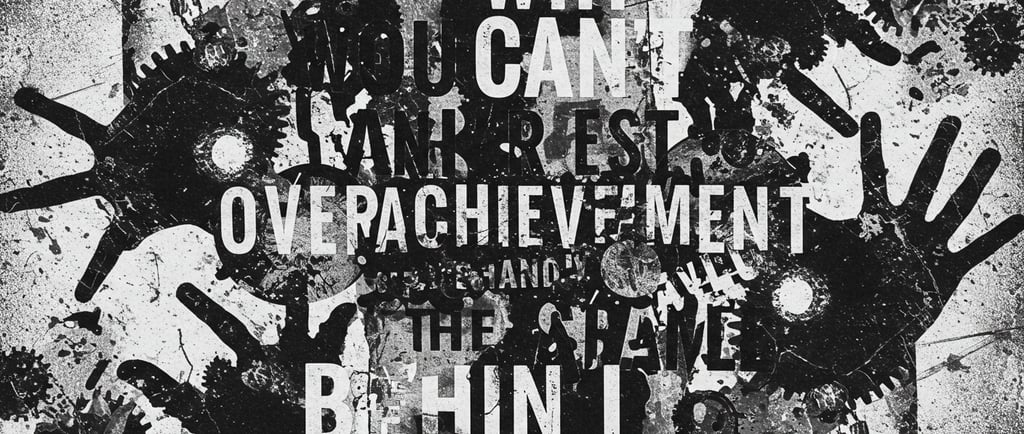Why You Can’t Rest: Overachievement and the Shame Behind It
Blog post description.


Why You Can’t Rest: Overachievement and the Shame Behind It
You’ve earned rest. You’ve crossed the finish line—maybe multiple times. But when you try to slow down, something doesn’t feel right.
You check your phone. You think about work. You plan the next thing. You can’t stop scanning for what still needs to be done.
And when you do rest, it feels… wrong. Not refreshing. Not fulfilling. Just flat. Guilty. Restless.
This isn’t because you’re wired to always be “on.” It’s often because your nervous system has been trained to equate rest with risk—and overachievement with safety.
Overachievement Is Often a Story About Shame
High performers rarely use the word shame. It doesn’t seem to fit.
But shame doesn’t always look like embarrassment or self-loathing.
Sometimes it looks like:
Hyper-productivity to avoid feeling unworthy
Self-policing when things are quiet
An inability to receive rest, support, or praise
Restlessness in stillness—as if something bad might happen if you stop moving
Overachievement often becomes a strategy for managing shame. The unconscious rule becomes:
“As long as I’m producing, I’m okay.” “If I stop, I might feel something I don’t know how to handle.”
Rest Isn’t the Problem. The Internal Reaction Is.
You may have tried the external fixes:
Digital detoxes
Time blocking
Mindfulness apps
Vacations with structure
And still—when space opens up, something pushes back. That something is rarely about your calendar.
It’s about your internal system. Specifically, the part of you that uses achievement to regulate self-worth.
When that part is active, rest feels unsafe—not because it is, but because it breaks the pattern you’ve used to survive and succeed.
Composite Case Study: Meet Jordan
Jordan is a 40-year-old COO at a fast-scaling company. She’s known for her precision, energy, and execution.
She’s also exhausted. Vacations leave her anxious. Unstructured weekends feel unbearable. Even “relaxation” activities become tasks to optimize.
In therapy, Jordan uncovered a childhood belief: If I’m not impressive, I’m invisible. Overachievement was never about ambition. It was about safety.
Once she started tending to the part of her that linked stillness with threat, everything changed.
She didn’t stop striving. She stopped running.
How Therapy Helps Break the Overachievement–Shame Loop
This isn’t therapy that teaches you how to set boundaries or take bubble baths.
It’s therapy that maps out your internal system—and helps you rewire it so rest isn’t interpreted as threat.
We use integrated methods like:
• Parts Work
To explore the achiever, the critic, and the part that equates stillness with failure. Instead of trying to shut them down, we learn their logic—and update it.
• EMDR Therapy
To process earlier experiences where stillness, mediocrity, or vulnerability felt unsafe, judged, or emotionally costly.
• Existential and Psychodynamic Exploration
To unpack how your identity fused with productivity, and how to untangle the two without losing your drive.
This isn’t about turning you into someone else. It’s about giving you access to more internal freedom—without sacrificing who you are.
The Neurobiology of Overachievement
Understanding the nervous system’s role adds another layer of clarity. Many high-achievers operate in a chronic state of sympathetic activation—fight, flight, or freeze—without realizing it.
When you’ve been praised, promoted, or even emotionally protected by performing at a high level, your brain learns to associate productivity with safety. Conversely, stillness becomes linked with vulnerability.
This isn’t a flaw. It’s adaptive. But what once kept you safe can, over time, keep you stuck.
Therapy works not only on thoughts, but on the physiological patterns underneath. We teach your system how to experience rest without interpreting it as a shutdown or threat.
This is where deeper healing happens—not just cognitive reframing, but nervous system recalibration.
How This Affects Relationships
When rest feels unsafe, connection often does too.
Clients often report:
Feeling guilty while spending time with loved ones
Resenting interruptions to work, even if the interruption is joy
Avoiding emotional conversations because they feel unproductive
Withdrawing when they’re not “at their best”
Overachievement as identity doesn’t just impact your calendar—it limits intimacy, spontaneity, and emotional availability.
By restoring internal safety, therapy creates space for relationships to thrive—not just be managed.
What Happens When Rest Isn’t a Threat
You start to feel:
Clearer during the day
Less self-conscious about pacing
Able to stop working without spiraling into guilt
More access to joy, humor, and creativity
Sleep that actually feels restorative
Achievement that feels chosen—not compulsive
Rest doesn’t weaken you. But unaddressed shame does.
And when you work through it, rest becomes what it was always meant to be: A return—not a risk.
Why This Is So Hard for High Performers
You’ve been praised for pushing through fatigue.
You’ve learned to equate effort with worth.
You’ve never had a model of “productive rest.”
You’ve felt judged—or judged yourself—for slowing down.
Therapy isn’t about reducing your drive. It’s about letting that drive come from alignment instead of fear.
You’re allowed to move fast. But you shouldn’t have to move afraid.
FAQs: Overachievement and Shame
How do I know if shame is really driving my overachievement? If rest creates guilt, stillness makes you anxious, or praise feels undeserved—you’re not just motivated. You’re managing something deeper.
Can I still be ambitious if I do this work? Absolutely. Most clients become more effective. Less distracted. More present. Ambition doesn’t vanish—it gets refined.
Isn’t this just burnout? Burnout is often the symptom. Shame-driven overachievement is the system underneath. Address the system, and burnout stops recurring.
Will this change how I relate to others? Usually, yes—and in a good way. Clients report more emotional availability, more ease in leadership, and fewer conflicts driven by urgency.
Related Reads
Burnout in High Performers
Procrastination vs. Perfectionism
How the Inner Critic Hides Behind Overachievement
Want to Explore What’s Behind Your Drive?
Book a free 30-minute Zoom consultation. This is a space for ambitious people who don’t want to burn out to succeed. No pressure. No jargon. Just clarity.
Schedule Your Consultation →
